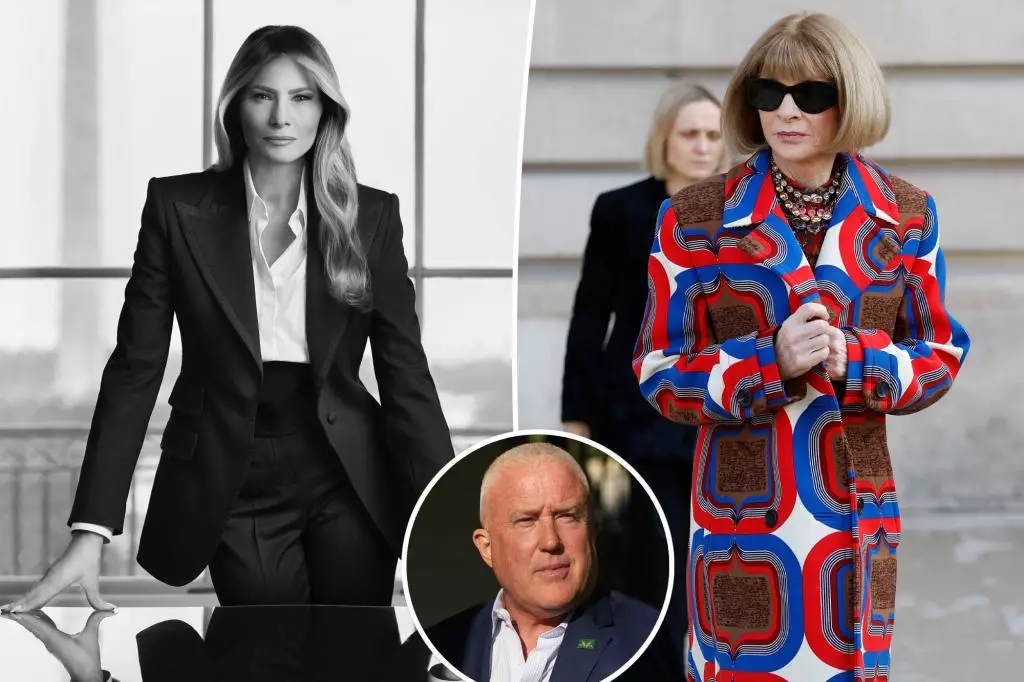The intersection of fashion and politics is often fraught with tension, particularly when high-profile figures such as Melania Trump enter the dialogue. Recently, the First Lady has become a focal point of contention, particularly following an op-ed in Vogue that criticized her fashion choices and public persona. Friends of Trump have rallied to her defense, using the critique as a rallying point against what they perceive to be unjust treatment by the fashion establishment. This article delves into the ongoing conflict, exploring both the backlash against the iconic magazine and the implications for Melania Trump’s public image.
The Catalyst for this controversy was Vogue’s harsh assessment of Melania Trump’s official White House photograph. The article gleefully pointed out that Trump’s pose resembled more of a reality television star than the dignified role expected of a First Lady. Phrasing such as “guest starring on an episode of ‘The Apprentice'” depicted a dismissal not only of her character but also of her role in public service. Such visceral critiques seem to stem from an ongoing disdain in certain fashion circles for Trump’s approach to her public image and the apparent disconnect between her style and the expectations of elite fashion standards.
The critique didn’t stop with her official portrait. Vogue’s wittily sarcastic remarks about her appearance, including comments about her face appearing “airbrushed into oblivion,” served to pierce deeper into the insecurities that often follow high-profile women in the public eye. It is not uncommon for female public figures to be measured against a rigid set of beauty standards; however, the degree of pettiness exhibited in this instance felt particularly pointed. Such comments compel us to reckon with the harmful implications of beauty journalism in our culture, particularly regarding women who occupy contentious political positions.
Following Vogue’s scathing remarks, staunch supporters of Melania Trump have taken to the airwaves to voice their support for her. Bill White, a known associate of Melania and Donald Trump’s former nominee for ambassadorial service, expressed fervent loyalty. His declaration of “canceling all subscriptions to Condé Nast” underscores the sentiment among some of Trump’s supporters that such public critiques extend beyond mere fashion commentary; they are perceived as overarching attacks on American values and integrity.
White’s defense characterizes the First Lady as not only a remarkable figure of beauty but also as a skillful and intelligent woman. He and others argue that her capabilities as a mother and her multilingual talent are overshadowed by media portrayals that treat her as little more than a prop in her husband’s political journey. This juxtaposition raises important questions about advocacy and media representation; to what extent should personal attributes be mixed with political narratives, especially when they lead to denigration rather than understanding?
As the Trump administration continues to navigate its tenure, such conflicts highlight a broader issue regarding the fashion industry’s treatment of political figures. The landscape has noticeably changed; once, the cover of Vogue was an aspirational benchmark for public figures, especially women. However, now it represents a double-edged sword, capable of authenticity or catalyzing public disdain. Melania, aware of this reality, has publicly stated a lack of interest in sitting for a Vogue cover, asserting that her focus lies on more substantial issues that impact the nation.
Furthermore, the remarks from her supporters about her past experiences reveal a deeper discontent with the fashion industry’s long-standing favoritism. The criticism that she did not receive significant accolades from the fashion community before may hint at an underlying nepotism within the industry that present alternative voices and perspectives. With the fashion elite often aligned against certain political figures, the relationship between high fashion and politics continues to be an uneasy one, fraught with missed opportunities for mutual understanding and respect.
The Vogue controversy surrounding Melania Trump highlights the complicated relationship between fashion, media, and politics. As figures on both sides engage in verbal sparring, the potential for greater empathy seems obscured. Whether these discussions will lead to a shift in how public figures are represented remains to be seen, but one thing is clear: the implications will reverberate well beyond the realm of fashion magazines.

